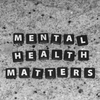The Treatment of Co-Occurring Disorders

When someone is struggling with both a substance use disorder and a mental health disorder (such as depression, bipolar disorder, post-traumatic stress disorder, etc.), it is essential that any treatment they seek for substance abuse address both disorders. A person with a dual diagnosis has two disorders that need to be treated.

What is Mental Illness?
Any disorder that causes someone to experience altered moods, behaviors or ways of thinking is considered to be a mental health disorder. The most common mental illnesses include:
- Depression – This can be anything from moderate to severe depression. This can also include dysthymia.
- Anxiety disorders – This can include post-traumatic stress disorder (PTSD), panic disorder, obsessive-compulsive disorder, and phobias.
- Personality disorders – This can include borderline personality disorder, multiple personality disorder, and antisocial personality disorder.
- Bipolar disorder – This is also sometimes referred to as manic-depressive illness or manic depression.
- Attention deficit hyperactivity disorder – This is usually abbreviated as ADHD or ADD in the case of attention deficit disorder without the hyperactivity.
- Eating disorders – This can include anorexia nervosa, bulimia nervosa, and binge eating.
- Psychotic disorders – This can include schizophrenia.
- Autism spectrum disorders – This is also abbreviated as ASD.
How Does Dual Diagnosis Treatment Work?
In a dual diagnosis treatment center, the first order of business is to stabilize the patient. The most important thing is to ensure the patient is not going to harm himself or others around him. Once this has been accomplished, the patient must go through the detoxification process. For some substances – like marijuana or cocaine – this process is as simple as stopping the use of the substance. For others – like benzodiazepines or alcohol – detox needs to be medically supervised as withdrawal symptoms can be dangerous, sometimes even deadly.
Once a patient has gone through detox, the patient will begin a plan of treatment. This may look different for each patient depending on the patient’s unique situation, the patient’s history with addiction and mental health, the nature of the patient’s particular mental disorder and addiction, etc. The patient may need residential treatment or he may need a partial hospitalization program.
An addiction specialist in a dual diagnosis treatment center like The Recovery Village at Ridgefield will work with each patient to assess their needs and determine which level of treatment is appropriate for them and which therapies will be the most effective. This may be determined by looking at:
- A patient’s mental health diagnosis
- A patient’s health and social needs
- A patient’s recovery goals
- A patient’s threats in the mission to remain sober
Medications Used in Co-Occurring Disorder Treatment
Medications may be an integral part of the treatment of a mental health disorder. Depending upon the mental health disorder in question, different medications may benefit the patient. For example, mood stabilizers, antidepressants, stimulants, anti-anxiety medications and antipsychotics may be used to treat the patient’s symptoms.
Detox drugs may also be used to treat addiction. If a patient is addicted to opioids, he or she may be prescribed Suboxone or methadone to better handle withdrawal symptoms and begin recovery without having to go through a painful detox. These medications work as replacement therapy. They both block other opioids from working, and they both work by giving the body the opioids it is dependent on without producing a euphoric feeling. Over the course of the next few months or years, patients on Suboxone or methadone step down so that they can live a drug-free life.
It’s important to note that all medications should be taken exactly as prescribed, and any physician or psychiatrist who treats the patient in the future should have a comprehensive understanding of the patient’s mental health situation and substance abuse situation.
Will Dual Diagnosis Treatment Work for You?
If you are suffering from both a mental health disorder and a substance use disorder, it may feel like you are alone. It may seem like treatment is impossible. However, nothing could be further from the truth. The Recovery Village at Ridgefield is the best option for dual diagnosis treatment in the Pacific Northwest. Convenient to Seattle, Portland, Tacoma and Eugene, The Recovery Village at Ridgefield is staffed with addiction specialists who are dedicated to helping you find the healing you deserve. Reach out today, and have a confidential conversation with one of the addiction experts that can help you.
*This blog post was written by Ridgefield Recovery.




